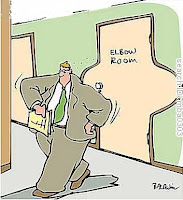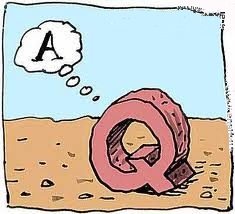I recently had the pleasure of listening to the provocative and insightful Professor Ralph Stacey – prolific writer on the complexity sciences and leadership and management.
He was talking about he experience of lecturing to a class of 100 students and asking them to write an assignment on what he had just conveyed … and the frustration of getting 100 very different answers back. “The logical conclusion” he said ” is that either I am a very bad teacher or I have 100 very stupid people in my class”, neither of which were particularly palatable or likely explanations. Instead of getting frustrated he now thinks this ‘failure of communication’ should be expected and maybe even welcomed. After all 100 people will all have their individual ways of making sense depending on their very different experiences and interests – none of us are blank canvasses.
I was thinking about this in terms of communication processes in large organisations and the frustration I meet in leaders who say “I’ve told them, but they still go off and do their own thing”. Stacey’s point is that communication is not a simple process of transmission and reception (radio metaphor) but an interaction where both parties make sense together, both influencing and being influenced, the final message emerging out of the exchange. 100 people are bound to hear 100 different messages, particularly when exchange is limited or constrained. Perhaps we would have less compliance issues in organisations if paradoxically there was less dependence on ‘tell’ and more on ‘engage’, less reliance on email and more on old fashioned face to face conversation. It will never catch on!





